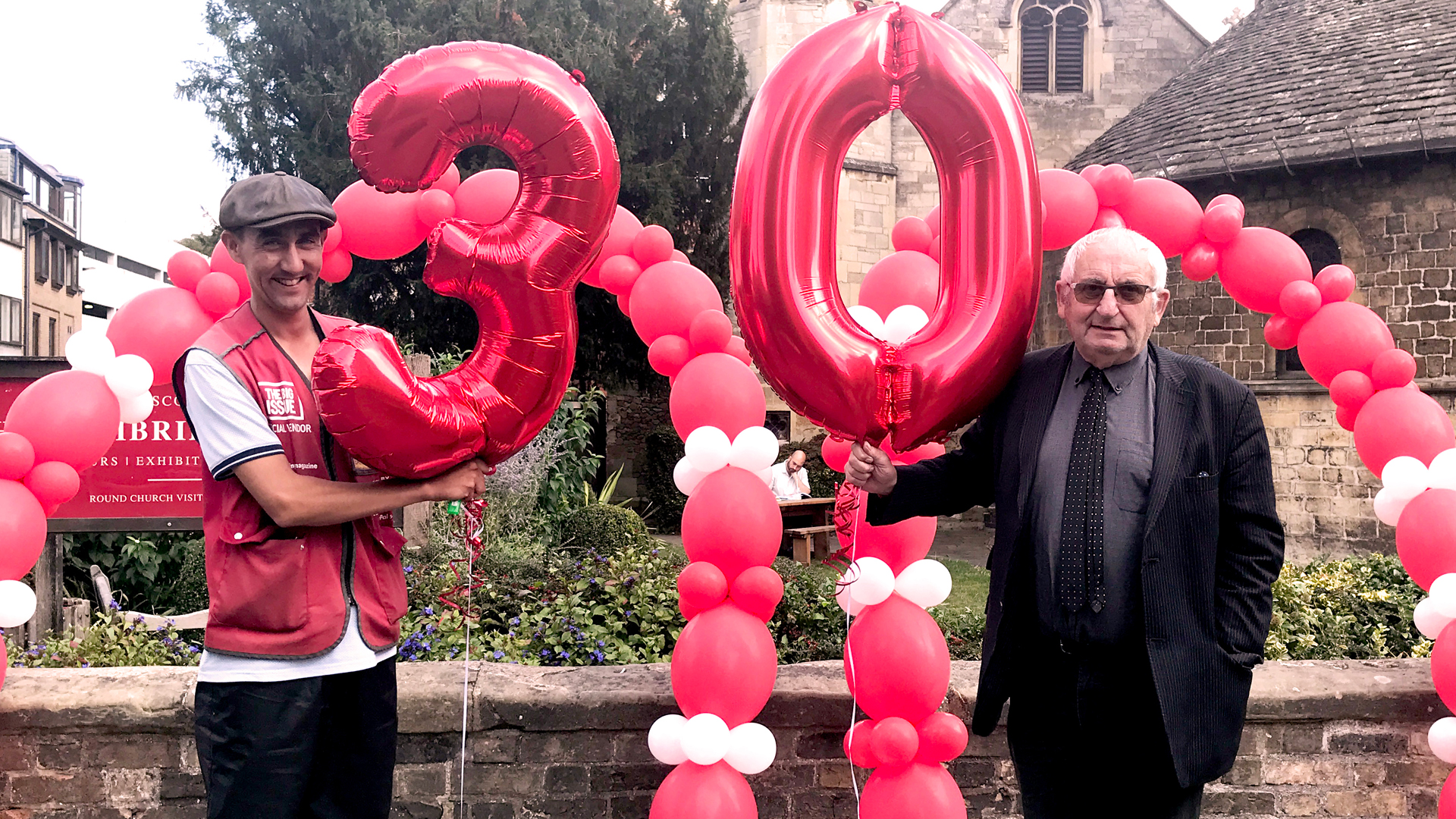Unhappily he died 10 years ago of medical complications that actually were the cause of many of his mental health problems. He was a homeless person who never got mental health support because it did not exist.
Big Duncan likewise was a nearly Big Issue vendor. One day when I was being picked up for a radio show in a car he came up to me and said, “I need to talk to you.” Without being asked he got into the car and sat beside me.
The car was a large Austin Princess, a kind of cheap Rolls-Royce. It was used largely for weddings and funerals. I had seen The Beatles in one in Notting Hill when they were making A Hard Day’s Night. It was a very unlikely car for a homeless Scots man to tell me a few home truths in.
What a human story, of social adversity to some extent overcome
But it wasn’t like that. He was to give me a different kind of updating: “John, since I left the army in my late thirties I was never out of trouble for longer than nine months. That’s all I could manage because of the drink. In and out of nick, I was.
“And then you started The Big Issue four years ago. And I’ve never been in trouble since. Occasionally a drunk and disorderly charge, but mainly kept my nose clean. That’s your Big Issue, John. I’m in touch with my kids again and when I go at least I’ll have ended it on an up.”
I couldn’t convince him to come on the radio to tell his story, but it was a profoundly interesting one. He had suffered from dreadful poverty and drink, then the army had sorted him to some extent and then, without a regime, he was back into more trouble – and then some kind of redemption and a loving relationship at last with his children. What a story!
Advertising helps fund Big Issue’s mission to end poverty
What a human story, of social adversity to some extent overcome. Never likely to become an eye surgeon at St Thomas’ Hospital, but a man who at last had a life he could live.
A very drunk ex-RAF officer called Tim stood in my office and shat himself as we spoke.
We cleaned him up, got him a billet and a pitch outside the Bank of England, and then on Fleet Street when it was still full of journalists. He changed with some support and he turned back into the kindly father- like man he had been in the days before his wife was killed and he lost the will to live.
He left us to be a chauffeur for a car company that worked for the BBC; the last time I saw him was when he pulled up and blocked the street in Soho and told me of all he had managed to achieve since the days a few years before of selling The Big Issue.
Tracy had had a very hard life but when I met her seemed to have developed a determination at 19 to go to university.
She sold The Big Issue around Holborn in Central London and had been helped by a number of her customers to take her A-levels and get a place to study.
Advertising helps fund Big Issue’s mission to end poverty
We helped her and gradually saw less and less of her as she got on with studying. But what was extraordinary about her was her ability to survive on the streets and build skills that aided her education.
It was her determination that she showed to the world, even though her beginnings had been so poor. She got her degree, got a job and said goodbye.
We had helped, but most of all she had the ability to help herself. This is why she is a standout figure for me, even all these years later. What makes a good Big Issue vendor?
An ability to take a chance offered. An ability to learn on the job. An ability to not beat themselves up, or blame the world for their plight. But to take support and do with it the very best that they can.
An ability to see others in a similar plight as worthy of help. A sense of hope for better times. An ability to see themselves as a tremendous expression of that wonderful thing called humanity.
If The Big Issue exists, it is because the public fell in love with our vendors. They didn’t fall in love with me. They fell in love with the people they saw on the street, who rose in their estimation because they demonstrated that they could rise Phoenix-like out of adversity.
Advertising helps fund Big Issue’s mission to end poverty
Many of the vendors I have known have been rich sources of storytelling.
In 30 years they have grown and developed and demonstrated that they needed The Big Issue to give them the chance to express their inner ingenuity.
I would like to think that we have done that. And our special issue last week, put together by our vendors, was a demonstration of that talent and skill. All to be found on our streets. And all hopefully improved into a better place by our association with them as readers or producers of The Big Issue.
Our blessed vendors!
John Bird is the founder and Editor in Chief of The Big Issue.
@johnbirdswords









